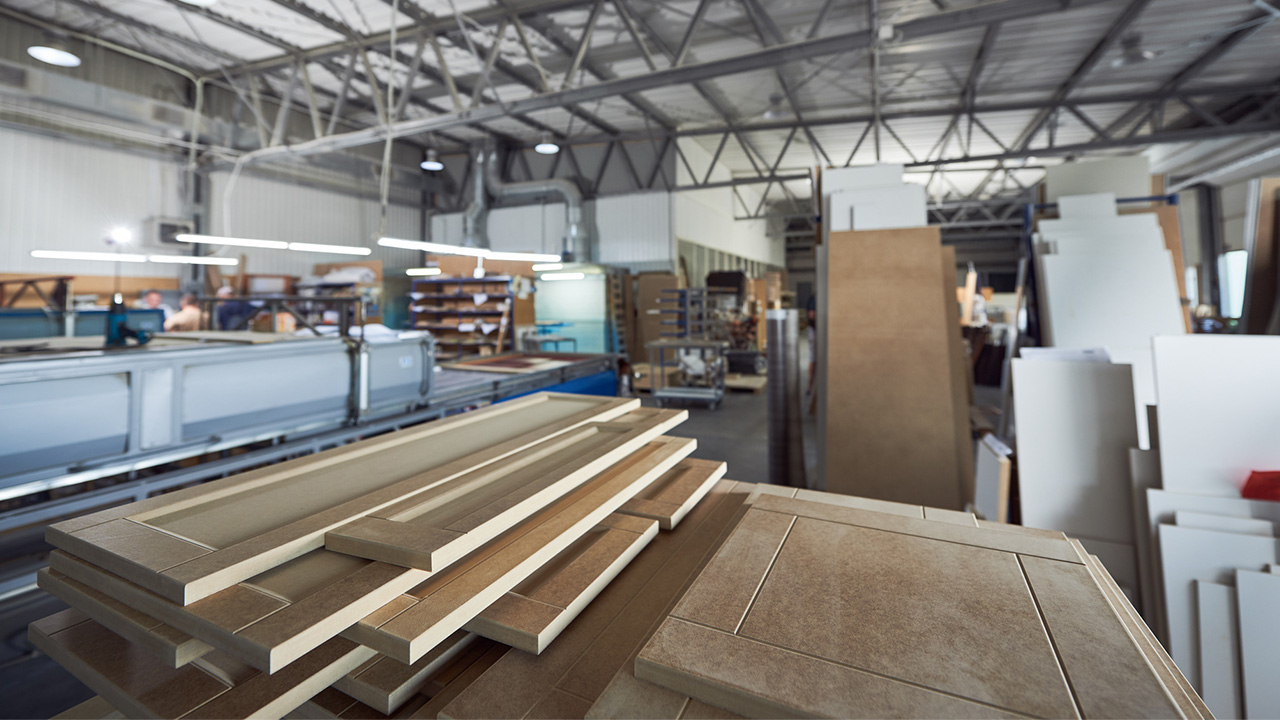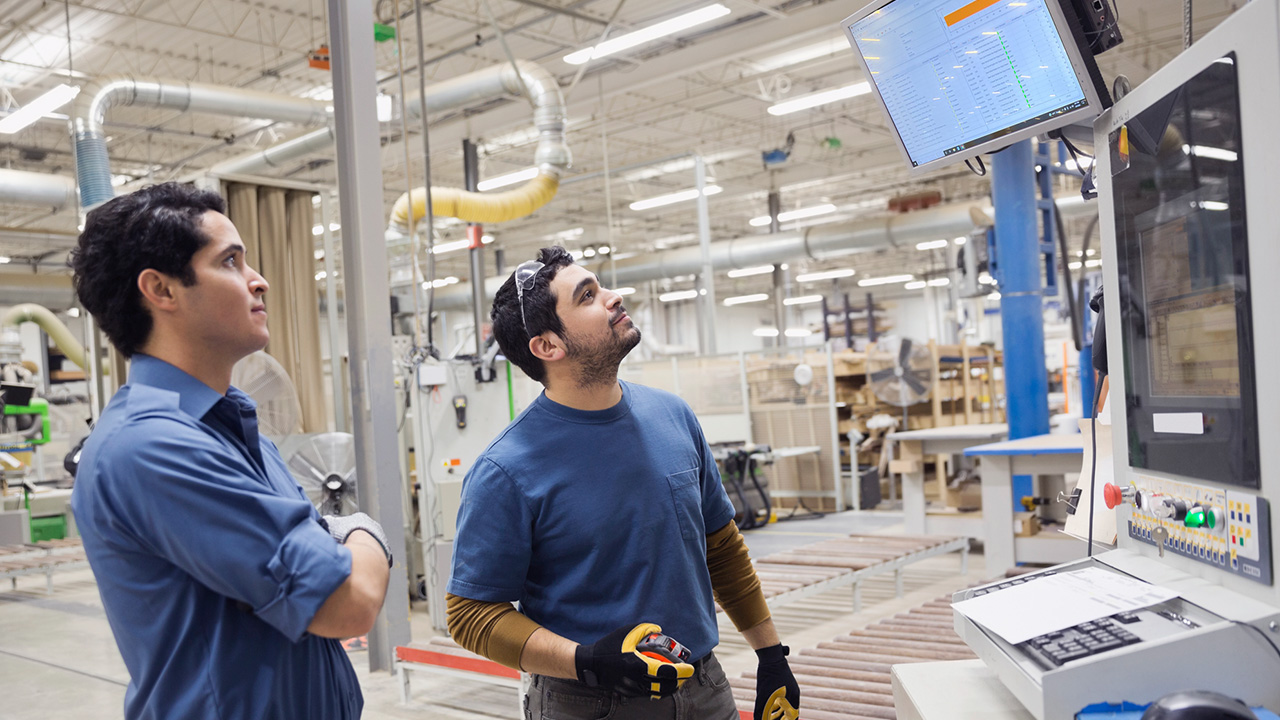
Bottom of the ninth. Two on, two out. The home team is down by two runs. The count is three balls and two strikes. The batter steps into the box for what could be the final pitch of the game. The pitcher winds up and delivers. It’s a curveball. The batter swings and...
The difference between success and failure for the batter is whether they swing at where the curveball is going or where it is when they begin their swinging motion. Swing at where the ball is going to end up and it’s a home run, a walk-off win for the home team. Swing at where the ball is before it curves and it’s a strikeout, a real-life reenactment of the legendary Casey at the Bat poem.
The ability to stay ahead of the curve with operations can determine the success or failure of a business – especially after the knuckleballs that have been thrown at the industry recently in the form of uncertain material availability and fluctuating prices.
Demand for customized products is increasing

In this summer’s Closets & Organized Storage magazine, Michaelle Bradford identifies a trend that began during the pandemic but is expected to continue to grow: customized spaces leading to customized products. Devoting home space to accommodate working remotely and hyper interest in hobbies may have begun during lockdowns, but the behavior is continuing for consumers across North America.
This is compounding the general demand for customized cabinets and furniture that was already in place before the pandemic, fueled by the desire for unique and personalized living spaces. The modern consumer wants furniture that resonates with their individuality, fits specific spaces perfectly and complements existing decor seamlessly.
This increasing desire for customization introduces a level of complexity that traditional manufacturing methods have struggled to handle. From managing a vast array of design options to coordinating the intricate production processes, manufacturers have found themselves grappling with increased lead times, potential errors and operational inefficiencies. This is where implementing ERP (Enterprise Resource Planning) software becomes so important.
The role of industry-specific ERP in customization

But even as integration and automation have increased across the wood product manufacturing sector, many in the industry still find it challenging to respond quickly to consumer demand for these custom products. That’s because integrating any old ERP software into operations isn’t going to help manufacturers stay ahead of the curve.
Just as their customers want products tailored to them, cabinet and furniture manufacturers need an industry-specific solution that will easily integrate the processes already being used in their production. A complete solution designed for wood product manufacturing creates a seamless flow of information from the bid and order entry right through to the final installation.
Industry-specific ERP software acts as the nerve center of a cabinet and furniture manufacturing business, integrating processes and departments into a cohesive and centralized platform. Here’s how that can make an enormous difference when it comes to making custom products:
- Streamlined order management: The right ERP system allows manufacturers to efficiently manage customized orders from inception to delivery. Through a centralized database, sales, design and production teams can collaborate seamlessly, ensuring that specifications, materials and timelines are accurately communicated and executed.
- Efficient resource allocation: Customized orders often involve unique materials and intricate designs. Industry-specific ERP software facilitates efficient resource allocation by providing real-time insights into inventory levels, enabling manufacturers to procure materials in advance, reducing waste and optimizing production schedules.
- Real-time visibility: The ability to monitor production progress in real-time is invaluable. An ERP system built for wood product manufacturing will offer dashboards that provide a holistic view of ongoing projects, identifying potential bottlenecks and allowing proactive measures to be taken, thereby avoiding delays.
- Accurate cost estimation: Customization can lead to fluctuations in costs due to variations in materials and design complexity. An ERP software like 2020 Insight aids in accurate cost estimation through its integrated business intelligence feature. This intuitive tool analyzes operational data with customizable and interactive charts that make plain where trends are heading. It gives manufacturers the information they need to ensure that pricing is competitive while maintaining profitability.
- Quality control and compliance: Customization demands meticulous attention to detail. An ERP software tailored to cabinet and furniture manufacturing helps maintain quality standards by enforcing checks at various stages of production and ensuring compliance with industry regulations.
2020 Insight
These are only some of the ways that 2020 Insight can help with customized orders. By automating and integrating business processes through 2020 Insight and its range of modules, manufacturers get an unmatchable competitive advantage when it comes to customization.
Because it connects operational workflows with a shop’s capabilities and requirements, custom orders can be executed just as easily as standard ones. In fact, 2020 Insight customers report having doubled their custom design output without increased labor costs (or spending time trying to find skilled labor that no longer exists).
The agility that 2020 Insight provides for responding to market demands also allows manufacturers to accelerate their time to market for new products. Engineering design integration and automation through 2020 Insight has helped reduce time to market by as much as 90 percent for 2020 customers and led to new products being designed and launched in fewer than 12 weeks.
This is the power of industry-specific ERP software. Not only does it let you know when the curveball is coming, it guides your bat to make perfect contact every time.
We'd love the opportunity to demonstrate our software’s capabilities, and show all that 2020 Insight can do for your business. To book a demo with a representative who can answer any questions you might have, click here.
Share this Post




